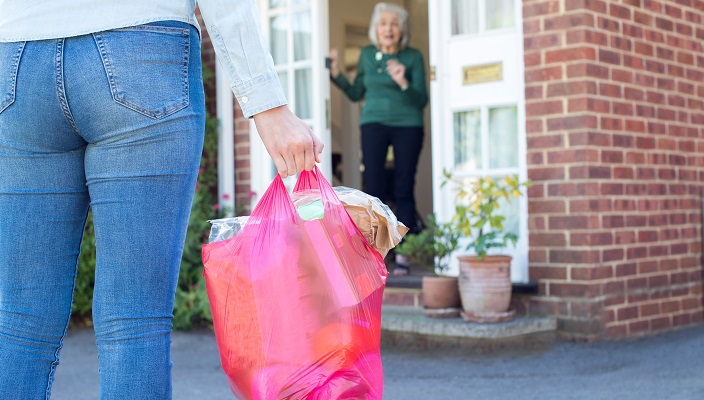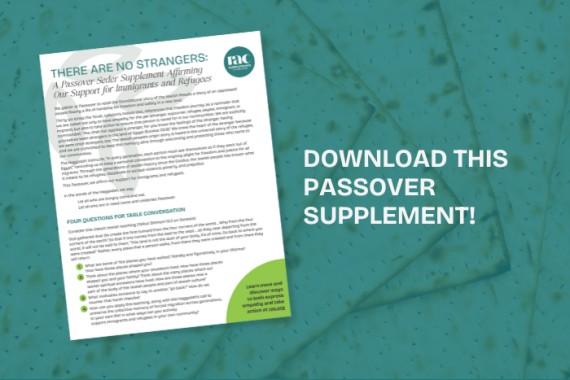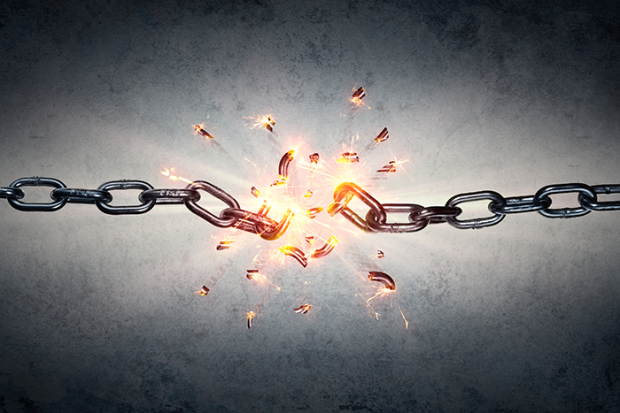
Passover is rich in social justice themes. It is impossible to study the Jewish story of redemption and not feel compelled to eradicate injustice in the world today. Among the primary social justice themes found in the Exodus story and in the Passover observance are hunger, homelessness, oppression, and redemption.
At Passover, we are reminded of a time when Jews were once restricted to eating only , considered the “bread of affliction,” due to the hasty retreat from Egypt. This experience with hardship following the exodus from Egypt is an inspiration to consider those who eat the metaphorical “bread of affliction” in present times.
In the , we are taught, “Even the poorest person in Israel may not eat until he reclines, and they must not give him less than four cups of wine.” This is a reminder that it is imperative to take care of everyone in the community, even the poorest person. The requirement that even poor Jews be provided with ample wine – and presumably with all of the holiday’s ritual foods and practices – leads to the expectation that Jews should help the poor and the hungry not just during Passover but throughout the year.
Passover also serves as a painful reminder that the Jewish people were seen as strangers in the land of Egypt and spent 40 long years of wandering in the wilderness without a home. These elements of the Passover story remind us of current issues of immigration and refugee concerns, and the memory of being displaced instills in us a desire to eradicate homelessness in the modern era.
At Passover, we read, “This year we are slaves. Next year, may we all be free.”Jews are commanded to be directly present in the Passover story, remembering what it was like for the Children of Israel to be slaves in the land of Egypt. This personal experience is a motivation to examine the current international situation and wrestle with cases of injustice, oppression, and modern-day slavery. Thus, Passover provides us an opportunity to raise awareness of contemporary examples of slavery and oppression throughout the world, such as human trafficking, the sex trade, and even domestic violence, which traps victims within their homes, limiting their freedom as surely as if they were enslaved.
You can incorporate social action themes into your Passover observance in the following ways.
Donate Your Chametz
The pre-Passover ritual of cleaning our homes of , or leavening, is the Jewish equivalent of “spring cleaning.”
This act requires the thorough cleaning of the entire house in a search for leavened products, down to the smallest crumb. The process reminds us of those who search daily for a nutritional meal to sustain themselves and their families. This Passover, donate your unopened boxes of pasta and other chametz to food pantries or soup kitchens in order to help those who are hungry to come and eat.
Help Others Celebrate Passover
The tradition of contributing kimcha dePischa, or funds for matzah, is an important one. In many communities, special Passover funds are set up to provide kosher holiday meals to Jewish families in need.
Assist those in need in your local or international community by providing kosher meals during the holiday of Passover to Jewish senior citizens, families in need, food pantries, or nonprofit organizations in Israel that address issues of hunger.
Update Your Seder Plate
Alongside the traditional items on the seder plate, try any (or all) of these seven modern additions to the seder plate, along with explanations of what each of them means.
Will you include an orange to represent the role of women in Jewish life? A potato to commemorate the exodus of Ethiopian Jews to Israel? Fair trade chocolate to recognize economic partnerships based on equality, justice and sustainable environmental practices?
Ask the Four Questions of Modern-Day Slavery
This modern social justice take on the Four Questions can be inserted at the reading of the Four Questions during your family’s or congregation’s seder:
- “Why on this night are some people still enslaved today?”
- “Why on this night do so many remain hungry in the world?”
- “Why on this night do we invite the hungry and lonely to share our meal?”
- “How can we eradicate hunger and homelessness tonight and every night?”
- A fifth question can be posed: "Why is this night no different from other nights? Because on this night millions of human beings around the world still remain enslaved, just as they do on all other nights. As a celebration of our freedom, we remember those who remain enslaved."
Turn to a Social Justice Version of The Four Children
In the middle of the seder, we arrive at The Four Children (sometimes called The Four Sons) – the wise, wicked, simple, and one who doesn’t know how to ask – whose views of the world uncover even more values that are important to us as Jews.
At this point in your seder, use one of the following resources to discuss a social justice issue of importance to you:
- The Four Children of Climate Change: Guide discussions about our Jewish obligation to “till and tend” the earth and varying beliefs on climate change.
- The Four Children of Racial Justice: Spark conversation about the importance of racial justice and the Reform Jewish commitment to equality.
- The Four Children of Reform Zionism: Rabbi Neal Gold offers a way to reintroduce Israel into our seder by asking: How is our freedom connected to Israel?
- The Four Children of LGBTQ Inclusion: Rabbi Dara Lithwick offers model for teaching about LGBTQ inclusion in an effort to make our seder tables – and our communities – ever more welcoming and free.
Recite a New “10 Plagues”
As we recite the 10 plagues God sent upon Egypt, we pour out 10 drops of wine, lessening our joy in memory of these hardships upon the Egyptian people. In today's world, there are many societal cruelties and injustices that can cause us to diminish our joy.
Consider adding these 10 plagues to your seder. Each drop of wine is our hope and prayer that people will cast out the plagues that today threaten everyone, everywhere they are found, beginning in our own hearts:
The making of war,
The teaching of hate and violence,
Despoliation of the earth,
Perversion of justice and government,
Fomenting of vice and crime,
Neglect of human needs,
Oppression of nations and peoples,
Corruption of culture,
Subjugation of science, learning, and human discourse,
The erosion of freedoms.

